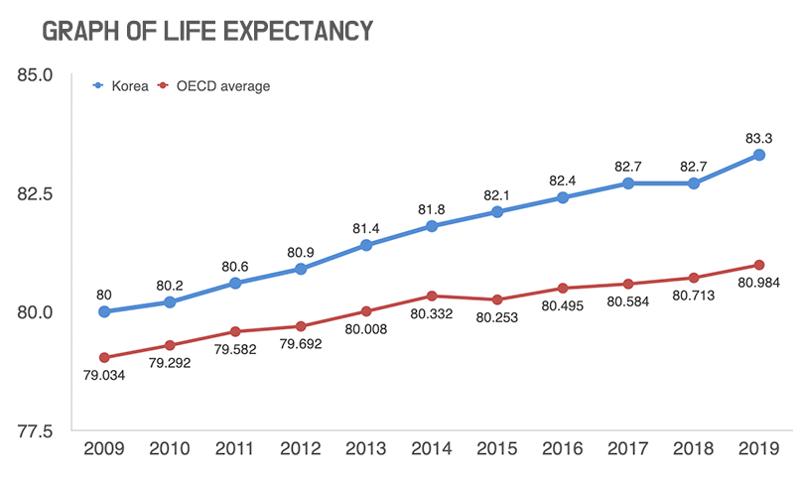
Life expectancy in Korea was 83.3 years in 2019, or 2.3 years longer than the average of 81 among member states of the Organisation for Economic Co-operation and Development. (Ministry of Health and Welfare)
By Lee Jihae
The nation's life expectancy of 83.3 years in 2019 was 2.3 years higher than the average of 81 among member states of the Organisation for Economic Co-operation and Development (OECD).
The Ministry of Health and Welfare on July 19 released an analysis based on the report OECD Health Statistics 2021, which was published on July 2.
Korea's life expectancy was just 1.1 years lower than that of OECD leader Japan (84.4) and ranked higher than the figures for France (82.9) and Germany (81.4).
Life expectancy is the expected number of years an infant born in a given year is expected to live.
Life expectancy for Korean men was 80.3 and that for women 86.3, two and 2.7 years higher than the OECD averages, respectively.
The avoidable mortality rate per 100,000 people was 144 (2018 standards), considerably lower than the OECD's 199.7.
The avoidable mortality rate is the ratio of deaths preventable through activities or adequate medical treatment.
Korea's avoidable mortality rate steadily declined over the past decade from 231 in 2008 to 182 in 2013 and 144 in 2018.
The infant mortality rate was 2.7 per 1,000 infants, 1.5 lower than the OECD average of 4.2.
The overweight and obesity rate, an indicator of a major cause of chronic disease, was 33.7% in 2019 for those aged 15 or older. This was the second-lowest rate after Japan's and far below the OECD's 59.9%.
The percentage of the smoking population aged 15 or older in 2019 was 16.4%, the same as the OECD average.
jihlee08@korea.kr
